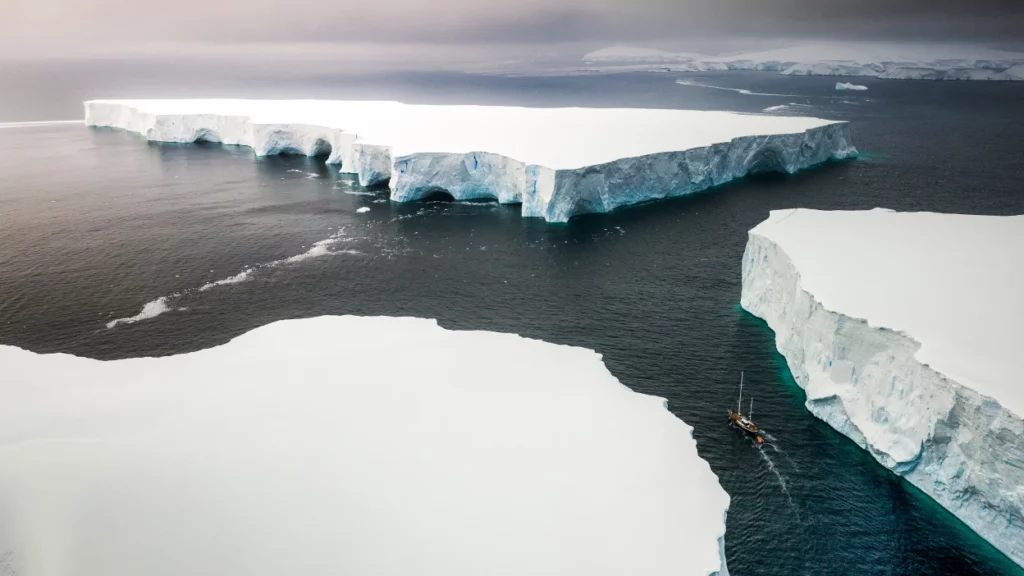The New York Times “Climate Fwd.” piles on with “See how the Antarctic is signaling major climate disruption”. Apparently sophisticated new “autonomous water-measuring floats” are letting us study it for the first time and realize it’s doing things it never did before. And if you’re wondering how we know that if we don’t know what it was doing, well, guess what? “With so much new information at hand, oceanographers and climate scientists are now learning more about the Southern Ocean. And what they are learning is worrying. The ocean is changing as the world warms as a result of emissions of carbon dioxide and other greenhouse gases.” Worrying. Because we only ever learn bad things.
And we’re all going to die, specifically by drowning. Possibly in a sea of speculation:
“the changes have huge implications for the future. The Southern Ocean may eventually release more carbon dioxide into the atmosphere, making it harder for the world to reduce emissions enough to stem global warming. And the ocean may accelerate the melting of Antarctic ice, which over the long term threatens to be by far the biggest contributor to sea level rise.”
Yeah. Or it may not.
The article continues “By some estimates the oceans have taken up about 25 percent of the excess carbon dioxide, and more than 90 percent of the excess heat, that has resulted from burning of fossil fuels and other human activities since the 19th century.” Whereas by other estimates it’s a kluge to explain why predicted warming didn’t show up in thermometers or satellite readings, which could also be explained by the model predictions having been wrong. Or so say the rubes. Not the scientists who say.
Continuing, “Scientists called climate trends in the Arctic ‘consistent, alarming and undeniable’ in their latest assessment, issued this week.” A minute ago we were talking about the Antarctic, but, hey, South Pole, North Pole, close enough.
Interestingly this article then repudiated any demonstrable link between recent American tornadoes and climate change. See “tornadoes are small. That makes them harder to model, and modeling is the primary tool that scientists use when attributing extreme weather events to climate change. Another is that tornadoes are incredibly complicated, forming only when the perfect conditions come together.” Whereas oceans are big and dead simple so we can model them exactly. Unless, mind you, anyone wants a prediction testable in the short run. Still, “The climate crisis is reshaping the planet. Here’s what it looks like in 193 countries.” And if you click on that link you get a moving graphic of a burning planet, along with “Cities swallowed by dust.” “Human history drowned by the sea.” “Economies devastated, lives ruined.” “These 193 stories show the reality of climate change. In every country in the world.” “POSTCARDS FROM A WORLD ON FIRE.”
Yes, folks. In the New York Times. Not the National Enquirer. All the hype that’s fit to print. And we are all going to die. In fact we probably already did.



"Economies devastated, lives ruined.”
That's assuming there's anything left standing after the various governmental responses to COVID.
Yes, great point. One inane distraction after another.
Based on the constant drip of hysteria, one wonders if any natural science research proposals that didn't include a presupposed linkage to climate change would be funded by the state. Alternatively, how much of the global climate-driven political / media narrative would exist if research in general including academia was entirely left to the private or voluntary sector - where it belongs. The existing symbiosis of hysteria production and salvation mandated from the state along with kickbacks to the producers is just another form of corruption that we could all live without.
Did they ever find Roald Amundsen? I was a pilot, ( and I still lick my thumb to gage the wind like the Von, correction Kanada Billy) would love to read his last events in the Artic.